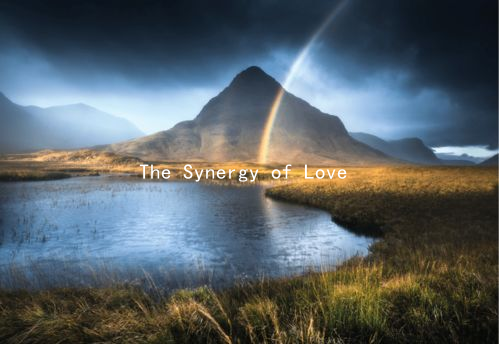The Balance of Desire: Philosophical Approaches to Healthy Relationships
In the journey of romantic relationships, the interplay between desire and balance can often shape the dynamics of connection. The philosophy of love and attraction is not merely based on instinct but is enriched by emotional intelligence and communication skills. To cultivate a healthy relationship, understanding the foundation of desire while maintaining a balanced approach is crucial.
Desire in relationships can be viewed through various philosophical lenses. Plato’s concept of love, for instance, emphasizes the idea of a higher love that transcends physical attraction. This type of love encourages partners to seek mutual growth and understanding, leading to a more profound emotional connection. In this sense, the desire must be tempered with introspection and a commitment to each other’s well-being.
Communication forms an essential part of balancing desire in any relationship. One powerful technique involves using I statements to express feelings and needs without placing blame. For example, instead of saying You never listen to me, one could articulate, I feel unheard when my thoughts are interrupted. This approach promotes constructive dialogue, allowing both partners to express their desires without escalating tension.
Furthermore, the balance of desire can also be seen through the lens of attachment theory, which categorizes different styles of attachment that individuals develop based on early experiences. Those with secure attachment styles tend to have healthier relationships, characterized by an ability to express their desires while respecting their partner’s boundaries. Conversely, individuals with anxious or avoidant attachment styles may struggle to find this balance, often oscillating between clinginess and withdrawal. Recognizing ones attachment style can facilitate better understanding and communication, thereby aligning desires in a healthy manner.
Equally important in maintaining this balance is the practice of empathy. Understanding and appreciating a partner’s perspective nurtures a deeper emotional bond. By acknowledging the significance of their partner’s feelings and needs, individuals can work together to create a fulfilling relationship environment. The key here lies in active listening and validation; making an effort to understand where a partner is coming from can mitigate misunderstandings and foster intimacy.

Another critical aspect is the idea of mutual respect and individuality within a relationship. Desire often flourishes in an environment where both partners feel valued as individuals. Encouraging personal growth and interests outside the relationship can lead to a richer shared experience. When both partners prioritize their individuality, they naturally contribute to a more vibrant and dynamic relationship, where desire is rooted in genuine admiration for one another.
Moreover, the philosophical notion of balance can be applied to the physical aspect of desire as well. It is crucial to find harmony between intimacy and personal space. This requires open discussions about boundaries and physical needs. Establishing comfort levels regarding physical affection can lead to a more satisfying connection, where both partners feel secure in expressing their desires.
Finally, regularly revisiting and reassessing a relationship is vital. Just as life circumstances change, so too do individual desires. Engaging in open conversations about evolving needs and experiences ensures that both partners remain aligned. This adaptability not only reinforces commitment but also enhances the emotional depth of the relationship, allowing desire to flourish amid a foundation of trust and understanding.
In conclusion, the balance of desire in romantic relationships requires a philosophical approach that integrates communication, empathy, respect for individuality, and ongoing dialogue. By embracing these principles, partners can foster a fulfilling relationship where desire is not simply a fleeting emotion but a sustained and enriching connection. Through mindfulness and engagement, the dynamics of love can evolve, leading to a partnership that thrives on mutual growth and profound understanding.





